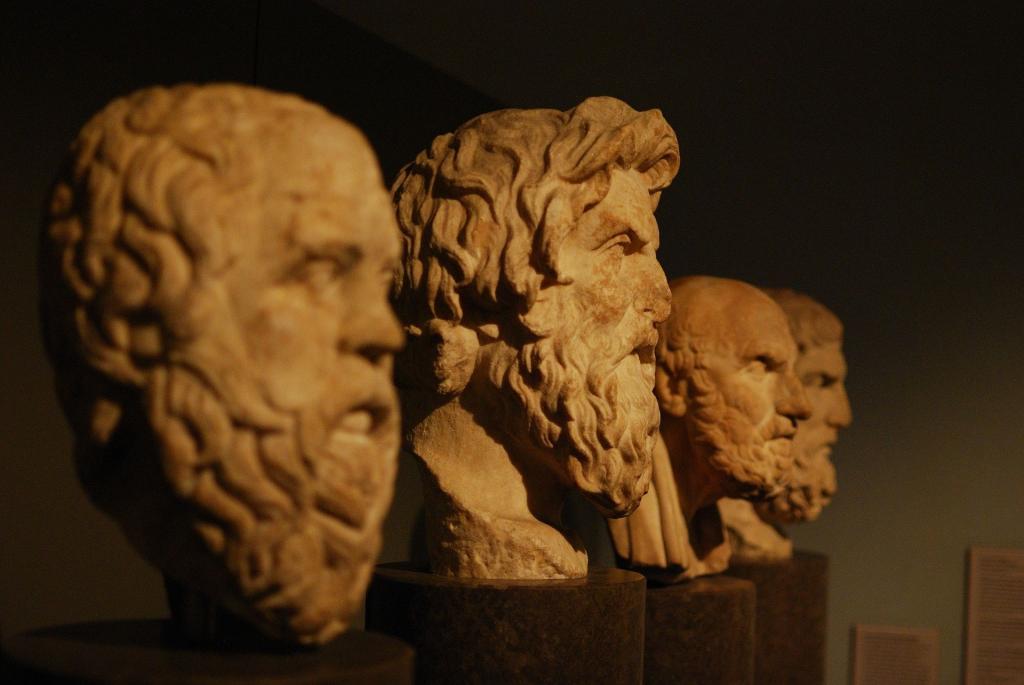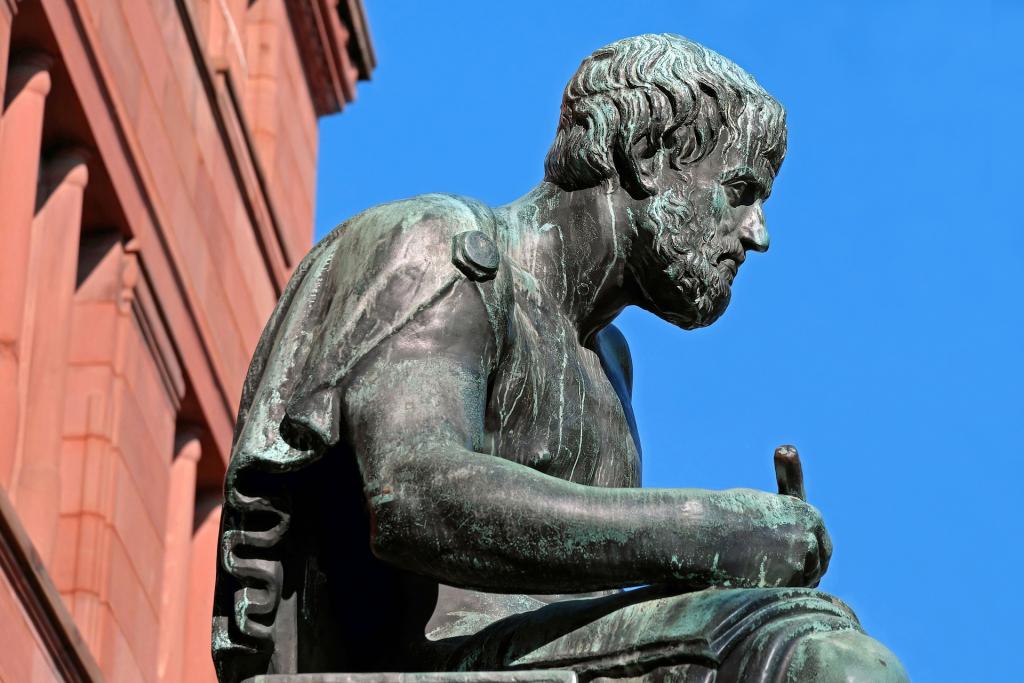Four different voices that give us insight on fate and freewill are Boethius, John of Damascus, Peter Abelard, and the Glossa Ordinaria. These are Christian voices from the medieval times that still resonant today. They inform our conversations about divine election, foreknowledge, and predestination.

Boethius and His Encounter with Lady “Philosophy”
Boethius wrote, The Consolation of Philosophy (Consolatio Philosophiae) either when imprisoned or in exile from Rome (c. 480–524). Theodoric the Great punished him because of a conspiracy attempting to restore the senate and overthrow the emperor. Boethius eventually suffered execution. Although arguably more a Neoplatonist than Christian in his thinking, the Eastern Orthodox Church venerates him, and the Roman Catholic Church considers him a martyr.
His writing centers on his dialogue with a woman personifying Philosophy. This dialogue takes place while he awaited his fate. Although he did not write a commentary on Romans 9, he discusses freewill and determinism with Philosophy. Boethius apparently did not find comfort in Augustine’s type of predestination.[1]
Philosophy affirms human freedom since humans are rational beings, though such freedom sis not the same in all. Human souls are freest in contemplation of God, less free imprisoned in bodily flesh and blood, and enslaved when given over to wickedness (Consolation 5.2). Paul likewise speaks of sin as enslavement in Romans 6, though he rejects the Platonic notion of the soul’s imprisonment in the body.
Philosophy speaks of God’s foreknowledge of human merits and his ability to predestine rewards according to those merits. Not satisfied with this answer, Boethius asks that if God foresees such things and cannot be mistaken, how is it possible that humans have freedom of will? (Consolation 5.3). Philosophy expresses a divine mystery related to human freedom and God’s omnipotence; humans are simply not permitted to comprehend fully the ways of God’s work (Consolation 4.6; 5.4).
Nevertheless, just as knowledge about present things and seeing those present things do not impose necessity on what is happening, so divine foreknowledge and foresight of things impose no necessity. When God gazes, he sees all things presently (outside of time), and so there is no necessity related to it, although “under the condition of time they are future things” (Consolation 5.6). Further discussion then takes place in which it is decided that both necessity and human freedom are affirmed.
John of Damascus and the Eastern Orthodox Church
Greek Orthodox theologian John of Damascus (675–749) wrote, “An Accurate Exposition of the Orthodox Faith” (De Fide Orthodoxa), Part III of his tome, The Fount of Knowledge. Although he did not write a commentary on Romans 9, he does address foreknowledge and predestination. Like the early church fathers prior to Augustine, he regards foreknowledge in terms of prescience, which takes precedence over predestination.
This position is standard in the Greek Orthodox Church: “For He [God] knows beforehand those things that are in our power, but He does not predetermine them. For it is not His will that there should be wickedness nor does He choose to compel virtue. So that predetermination is the work of the divine command based on foreknowledge. But on the other hand God predetermines those things which are not within our power in accordance with His prescience. For already God in His prescience has pre-judged all things in accordance with His goodness and justice.” (Orthodox Faith II.31).[2]
Predestination to damnation is also ruled out by John: “God’s original wish was that all should be saved and come to His Kingdom [1 Tim 2:4]. For it was not for punishment that He formed us but to share in His goodness, inasmuch as He is a good God. But inasmuch as He is a just God, His will is that sinners should suffer punishment.” (Orthodox Faith II.29).
Peter Abelard’s Commentary on Romans
Differently, in the Western Church, 12th-century French theologian Peter Abelard (1079–1142), wrote a commentary on Romans. Regarding Esau serving Jacob before either was born (Romans 9:11–13), he writes:
“This servitude [of Esau] should be understood not so much in the persons of the two brothers as in their posterity, that is, in the peoples who were promised to be born from them, when the Lord said to Rebecca, “Two nations are in your womb, and two peoples will be divided from it, and a people.”[Gen 25:23].[3] This election, then, is corporate.
Similar to and perhaps influenced by Augustine, Abelard writes regarding that God has mercy on whom he wills and hardens whom he wills (Romans 9:18): “that is, because of his willing and his choice rather than because of their own merits, men are either saved through his mercy or condemned in their sins through his hardening. He causes this hardening by not having mercy, so that the whole thing may appear to be ascribed to the divine choice of men for salvation or condemnation.”
The Glossa Ordinaria
The Glossa Ordinaria (“ordinary gloss”) is a Medieval commentary considered the standard of its day (12th century), compiled by the school of Anselm of Laon. In Romans 9:11, this work interprets “purpose” as the foreknowledge of God. Regarding Jacob elected over Esau (Rom 9:12) this source says, “He found nothing to be loved in Jacob except the gift of his own mercy; he hated nothing in Esau except original sin.”[4] Jacob is chosen by grace rather than merit, and Esau, “was reprobated when grace was taken away.”
This work considers the divine hardening of Pharaoh as an act of justice, which takes place when grace is subtracted from such a person. The notions of original sin and the withholding of grace seem to be under the influence of Augustinian thought, as is the notion that God’s mercy is gratuitous (see Rom 9:15–18).
Reflection
 With this instalment of the Romans 9 debate, I decided to focus on neglected voices from the Middle Ages. This study is by no means exhaustive for the period. At any rate, we notice three different positions that emerge here. Two reflect the influence of Augustine in relation to the Western Church (Abelard and Glossa Ordinaria). One reflects the influence of the early church fathers in relation to the Eastern Church (John of Damascus). And one reflects Plato’s philosophy (Boethius).
With this instalment of the Romans 9 debate, I decided to focus on neglected voices from the Middle Ages. This study is by no means exhaustive for the period. At any rate, we notice three different positions that emerge here. Two reflect the influence of Augustine in relation to the Western Church (Abelard and Glossa Ordinaria). One reflects the influence of the early church fathers in relation to the Eastern Church (John of Damascus). And one reflects Plato’s philosophy (Boethius).
If we add Thomas Aquinas to this mix, we get a blend of thoughts influenced by both St. Augustine and the philosopher Aristotle. These sources provide us with important links in between the Patristic theologians and the Reformers. In our next instalment of the debate, we will observe a debate over freewill between a Reformer influenced by Augustine and a Christian humanist philosopher. So stayed tuned…
Notes
[1] Victor E. Watts, “Introduction,” in Boethius, The Consolation of Philosophy (Harmondsworth, Middlesex: Penguin Books, 1969), 26.
[2] John Damascene, “An Exact Exposition of the Orthodox Faith,” in The Nicene and Post-Nicene Fathers (New York: Christian Literature Company, 1899), vol. 9b: 42.
[3] Peter Abelard, Commentary on the Epistle to the Romans (Washington, D.C.: The Catholic University of America Press, 2011), 290–91.
[4] Michael Scott Woodward, translator, The Glossa Ordinaria on Romans (Kalamazoo: Western Michigan University, 2011), 143.
Image 1: busts philosophy Aristotle via pixabay.com; image 2: sculpture bronze figure via pixabay.com













